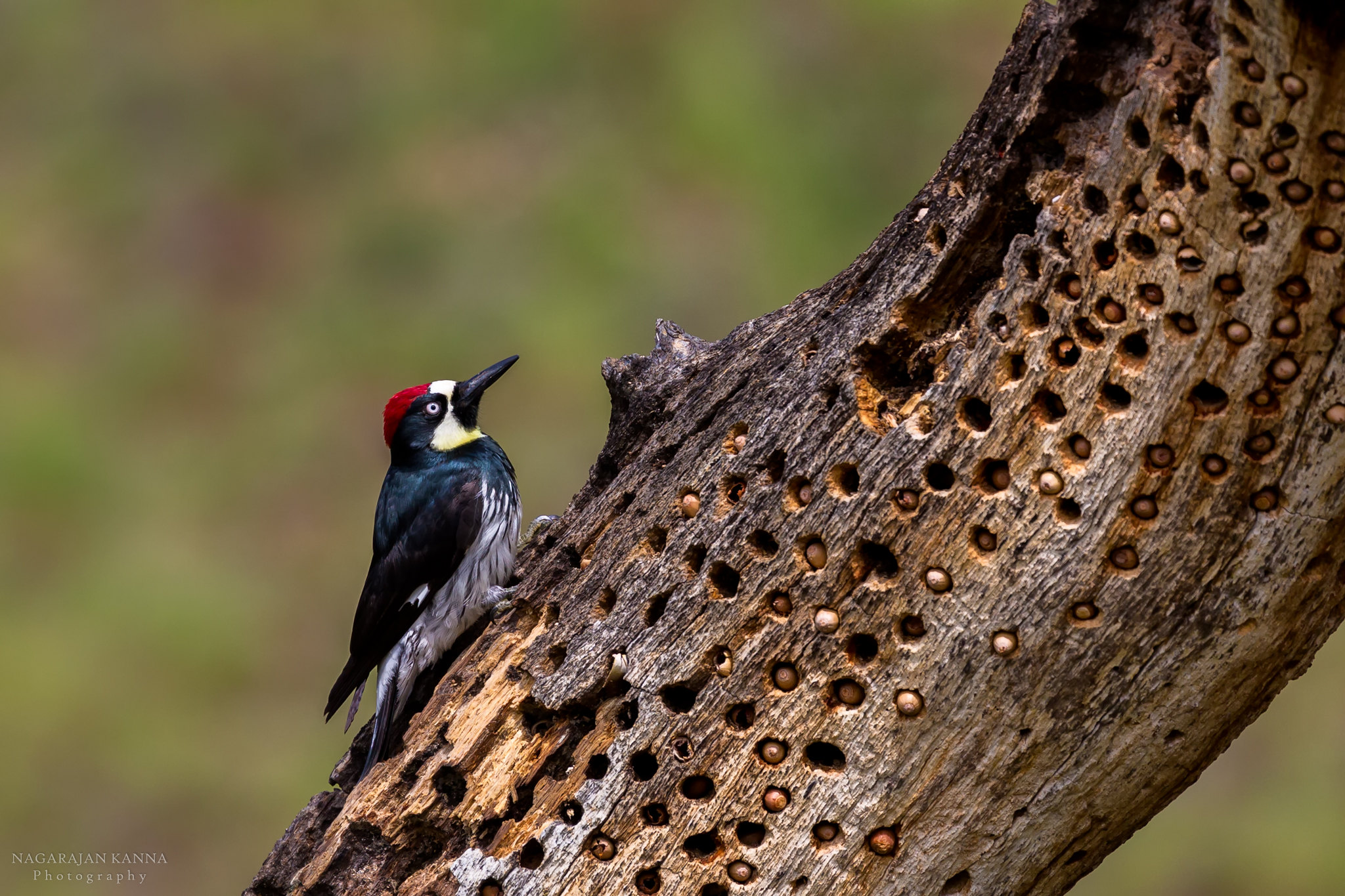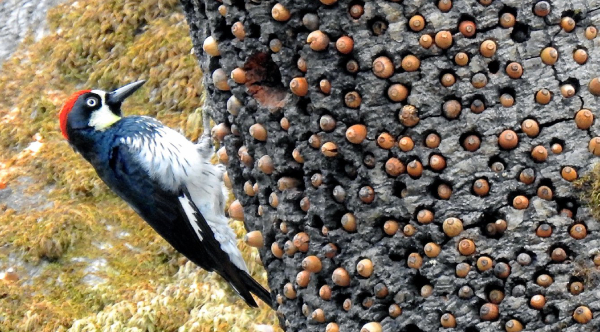The Acorn Woodpecker (Melanerpes formicivorus) is a fascinating bird found primarily in the western regions of North America, particularly in California and the surrounding areas. Renowned for its unique behavior and remarkable intelligence, this woodpecker has earned its title as nature’s master storage expert.
Acorns are not just a food source for Acorn Woodpeckers; they play a crucial role in the diet of various other wildlife species. By storing acorns, these woodpeckers ensure a steady food supply during the winter months when resources are scarce. Additionally, the trees that benefit from acorn dispersal can thrive in new areas, promoting biodiversity.
These woodpeckers prefer open woodlands, oak forests, and areas with a mix of trees and grasslands. They typically nest in tree cavities, where they lay their eggs and raise their young. The choice of nesting sites is strategic, often located near their granaries, ensuring easy access to food when feeding their chicks.
While Acorn Woodpeckers are currently not considered threatened, habitat loss due to deforestation and urbanization poses a risk to their populations. Conservation efforts focused on preserving oak woodlands and promoting sustainable land use can help protect these remarkable birds and their habitats.